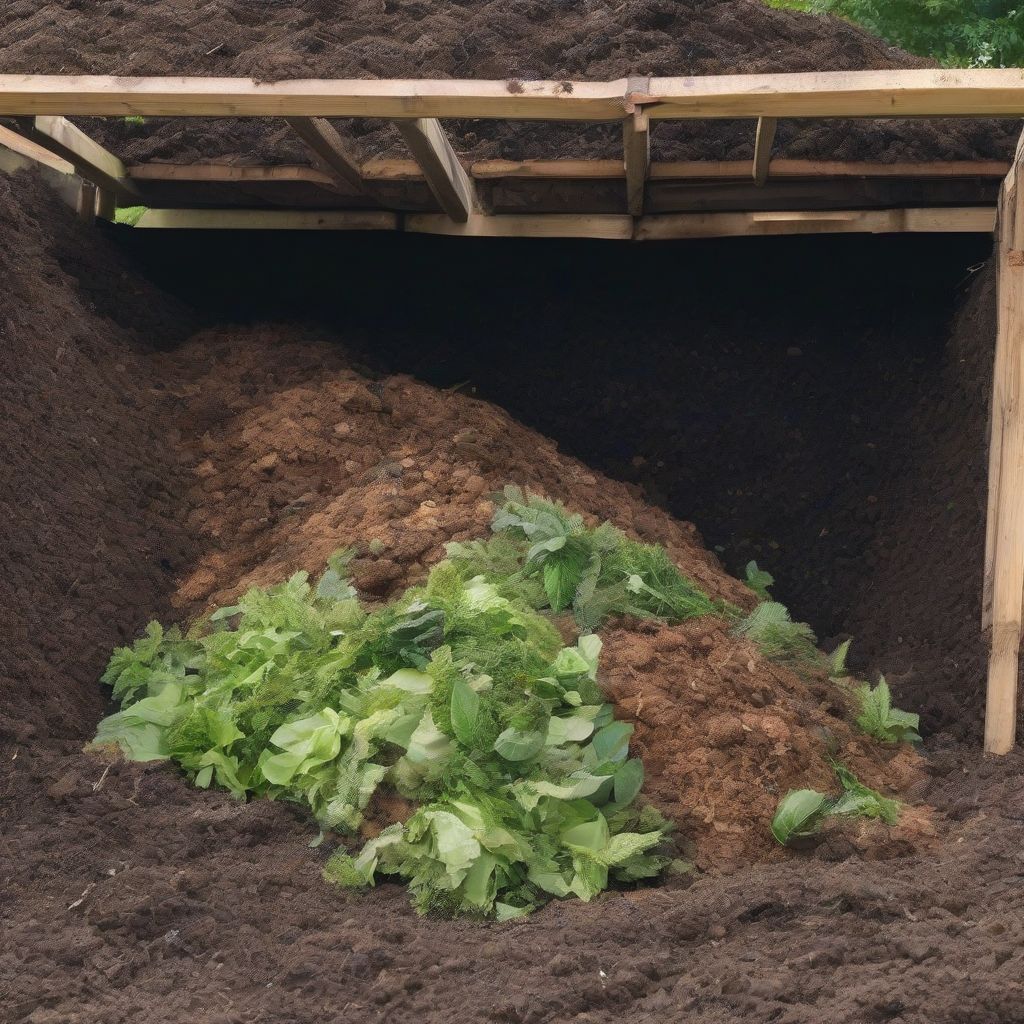Have you ever dreamt of transforming your kitchen scraps and yard waste into “black gold” for your garden? That dream can be a reality with composting! But just like any good recipe, composting requires the right balance of ingredients. In this case, it’s all about finding the perfect harmony between “green” and “brown” materials.
Understanding the Basics: Green vs. Brown
Before we dive into ratios and techniques, let’s clarify what we mean by “green” and “brown” materials. Don’t let the colors fool you, we’re not talking about a fashion faux pas!
Green materials are rich in nitrogen, a key element for microbial activity in your compost pile. Think of them as the energizers that get the decomposition party started!
Here are some common green materials:
- Food scraps: Fruit and vegetable peels, coffee grounds, tea bags, eggshells
- Grass clippings: Freshly cut grass (in moderation)
- Manure: From herbivores like cows, horses, chickens (ensure it’s well-aged)
- Green leaves: Freshly fallen leaves, especially from nitrogen-fixing trees like clover and alfalfa
Brown materials are your carbon sources. They provide structure to your compost pile, allowing for airflow and preventing it from becoming a soggy, smelly mess.
Examples of brown materials include:
- Dry leaves: The bulk of your fall leaf collection
- Shredded paper: Newspaper, cardboard (avoid glossy or coated paper)
- Straw or hay: Excellent for adding bulk and air pockets
- Sawdust: Use sparingly, as it can compact and slow down decomposition
- Wood chips: Best used in smaller pieces or aged for a year before adding
 Compost Pile Layers
Compost Pile Layers
Finding the Magic Ratio: Green to Brown
The ideal ratio for a healthy compost pile is 30:1 (carbon:nitrogen). However, don’t stress about being overly precise. Aim for a visual balance of roughly two parts brown materials to one part green materials.
Why is this ratio so important?
- Too much green: Your compost will become slimy, smelly, and attract unwanted pests. Think of it as an overcrowded party gone wrong!
- Too much brown: Decomposition slows down dramatically, as the microorganisms lack the nitrogen they need to break down the carbon-rich materials.
Tips for Maintaining the Right Balance:
Here are some practical tips for keeping your compost happy and balanced:
- Chop it Up: Smaller pieces decompose faster. Consider shredding leaves, chopping up woody stems, and cutting food scraps into smaller bits.
- Layer It Like a Cake: Start with a base of brown materials for good airflow. Alternate between layers of green and brown, like building a delicious compost cake!
- Turn It Regularly: Turning your compost pile every 1-2 weeks aerates the mixture, distributes moisture, and speeds up decomposition.
- Monitor Moisture Levels: Your compost should feel like a wrung-out sponge. Too wet? Add more brown materials. Too dry? Mist it with water or add moisture-rich greens like fruit scraps.
- Be Patient: Composting takes time. Depending on the materials and conditions, it can take anywhere from 2 months to a year for your compost to be ready.
Troubleshooting Common Compost Imbalances:
Even with the best intentions, compost imbalances can happen. Here’s how to spot and fix them:
- Problem: Compost pile is too wet and smelly.
- Solution: Add more brown materials like dry leaves, shredded paper, or straw. Turn the pile more frequently to improve airflow.
- Problem: Compost pile is too dry and slow to decompose.
- Solution: Add more green materials like grass clippings or food scraps. Moisten the pile with water if necessary.
- Problem: Compost pile is attracting pests.
- Solution: Make sure you’re burying food scraps properly and turning the pile regularly. Add more brown materials to deter pests.
Conclusion: The Rewards of Balanced Composting
Achieving the right balance of green and brown materials in your compost may seem daunting at first, but with a little practice, it becomes second nature. The rewards of a thriving compost pile are well worth the effort:
- Nutrient-rich soil amendment: Your plants will thank you for the boost of natural nutrients.
- Reduced waste: Composting diverts organic waste from landfills, reducing methane gas emissions.
- Sustainable gardening practices: Embrace an eco-friendly approach to nourish your garden and the environment.
Composting is a rewarding journey that connects you to the natural cycle of growth and decay. By understanding the importance of green and brown materials and their ideal balance, you’ll be well on your way to creating your own “black gold” and reaping the benefits of a healthy and productive garden.
So, why not start composting today? Your garden, and the planet, will thank you for it!
[amazon bestseller=”composting”]
